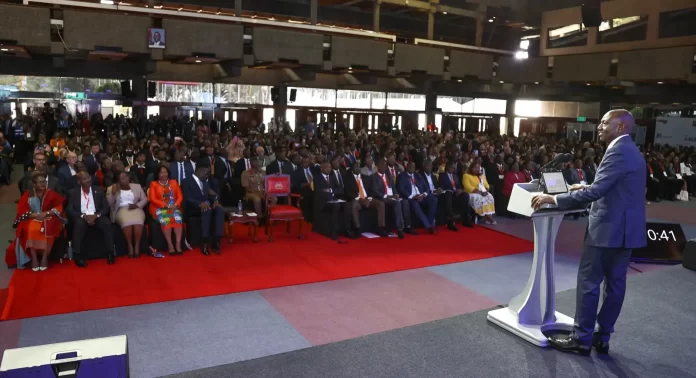
“Carbon credits have been pushed as a solution to help finance climate initiatives in Africa, but upon closer examination, it becomes clear that they are nothing more than a wolf in sheep’s clothing.” Said Eunice Musiime, the Executive Director of Akina Mama wa Afrika.
While it is important to find ways to fund climate action on the continent, carbon credits are not the answer, and they come with significant drawbacks that should give us a break.
During an interview, Mwanahamisi Singano, the Senior Global Policy Lead at Women’s Environment and Development Organization said that, Carbon credits rely on market-based solutions, which are fundamentally flawed when it comes to addressing the climate crisis.
She added that, climate change is a global problem that requires collective action, not just an opportunity for the wealthy to buy their way out of responsibility.
By allowing developed countries to continue emitting carbon and then offsetting it by purchasing credits from countries like Congo with extensive forests, we perpetuate a system that allows the rich to pollute while the poor bear the brunt of the consequences.
Additionally, the idea of introducing a carbon tax in Africa, as proposed by the Kenyan President William Ruto, may seem appealing on the surface but it’s important to consider who will bear the burden of this tax. It is likely to be the ordinary citizens of Africa who will have to pay more for their energy and goods, while multinational corporations and wealthy individuals continue to pollute with impunity. This regressive taxation scheme will worsen economic inequalities in the region.
The interconnectedness of climate and biodiversity catastrophes is undeniable, but carbon credits do little to address the root causes of these problems. They allow countries to continue emitting greenhouse gases, which not only worsens climate change but also contributes to habitat destruction and loss of biodiversity. It’s a short-sighted approach that sacrifices long-term environmental health for short-term financial gain.
Moreover, carbon credits run the risk of driving pollution beyond acceptable limits. Instead of incentivizing real emission reductions, they create a perverse incentive for industries to emit more, with the promise of buying credits to offset their excess. This can lead to an overall increase in pollution, thus intensifying the climate crisis.
Africa should reject carbon credits as a source of funding for climate initiatives. The continent deserves more than a financial Band-Aid that fails to address the underlying issues. We must not commodify the air we breathe or allow our natural resources to be exploited for the benefit of others. Africa has unique challenges and contributions to emissions, and we should seek solutions that prioritize sustainability, equity, and justice.
Carbon credits are not the solution that Africa needs to combat climate change. We must focus on strategies that promote real emissions reductions, protect biodiversity, and prioritize the well-being of our citizens. It’s time for Africa to demand better and pursue more effective, equitable, and sustainable approaches to climate financing.














